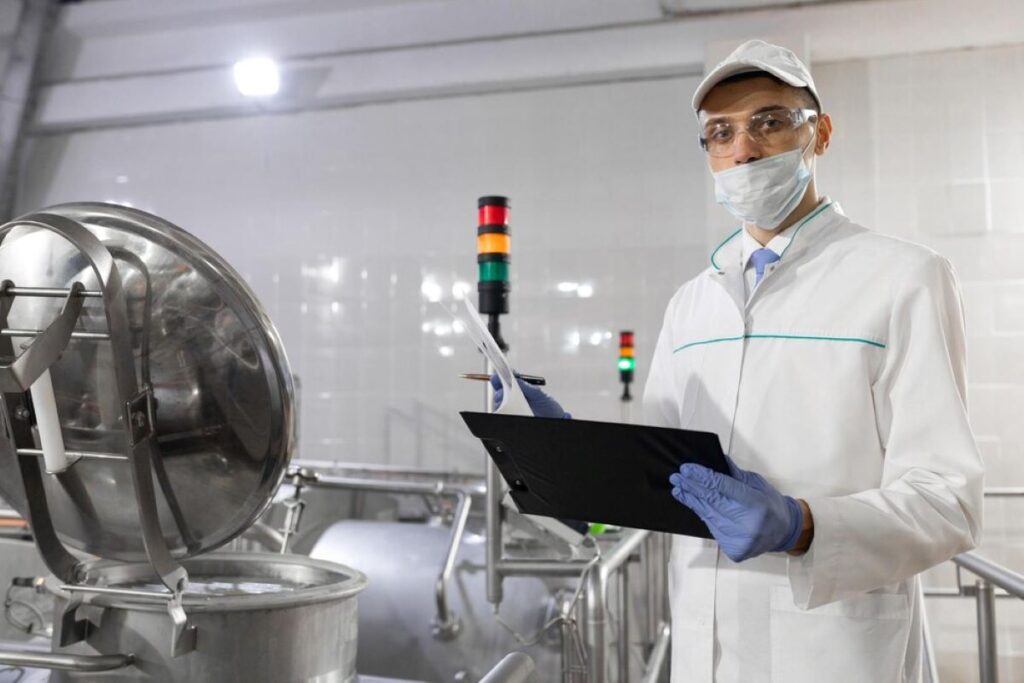Preparing for Food Safety Audits with the Right Compliance Tools
In the food industry, ensuring safety and compliance is paramount. As regulations become increasingly stringent, food businesses must be prepared for audits that assess their adherence to safety standards. The right compliance tools can streamline this process, making it easier to maintain high standards and pass inspections. This article explores the essential aspects of preparing for food safety audits and how compliance tools can facilitate this crucial task.
The Importance of Food Safety Audits
Food safety audits serve as a critical checkpoint for businesses in the food supply chain. These audits not only evaluate compliance with local and international regulations but also assess the effectiveness of a company’s food safety management system.
Ensuring Consumer Safety
At the heart of food safety audits is the primary goal of protecting consumers. By ensuring that food products are safe for consumption, businesses help prevent foodborne illnesses, which can have severe health implications. Regular audits allow companies to identify potential hazards and rectify them before they escalate into serious issues. Furthermore, these audits often involve a thorough examination of food handling practices, storage conditions, and employee training, ensuring that every aspect of the food production process adheres to the highest safety standards. This proactive approach not only safeguards public health but also contributes to a culture of accountability within the organisation.
Maintaining Brand Reputation
A food safety audit can significantly impact a company’s reputation. A successful audit demonstrates a commitment to quality and safety, fostering consumer trust. Conversely, failing an audit can lead to negative publicity and loss of customer confidence. In today’s digital age, where information spreads rapidly, the repercussions of a poor audit can be long-lasting. Companies that consistently pass their audits often find themselves at a competitive advantage, as consumers are increasingly inclined to choose brands that prioritise safety and transparency. Additionally, many retailers and distributors require proof of compliance through regular audits before they will partner with a supplier, making these assessments not only beneficial but essential for business growth and sustainability.
Understanding Compliance Tools
Compliance tools are essential for managing the complexities of food safety audits. These tools encompass a range of software and systems designed to help businesses adhere to regulatory requirements and streamline the audit process. As food safety regulations continue to evolve, the importance of these tools cannot be overstated, as they play a pivotal role in safeguarding public health and maintaining consumer trust.
Types of Compliance Tools
There are various types of compliance tools available, each serving a unique purpose. Some of the most common include:
- Document Management Systems: These tools help businesses organise and store essential documents, such as safety protocols and training records, ensuring easy access during audits. They often come equipped with version control features, allowing companies to track changes and maintain an accurate historical record of compliance documentation.
- Audit Management Software: This software facilitates the planning, execution, and reporting of audits, allowing businesses to track compliance and identify areas for improvement. With features like automated scheduling and customisable reporting, these tools can significantly enhance the efficiency of the audit process.
- Training Management Systems: These systems ensure that all employees are adequately trained in food safety practices, a crucial aspect of compliance. They often include e-learning modules, assessments, and tracking capabilities to ensure that training is both effective and up-to-date.
Benefits of Using Compliance Tools
Utilising compliance tools offers several advantages that can enhance a company’s readiness for food safety audits. These benefits include:
- Increased Efficiency: Automation of compliance processes reduces the time spent on manual tasks, allowing staff to focus on core business operations. This efficiency not only boosts productivity but also helps in reallocating resources to areas that require more attention, such as customer service or product innovation.
- Improved Accuracy: Compliance tools minimise human error by standardising procedures and providing clear guidelines for employees. The integration of checklists and reminders within these tools ensures that critical tasks are not overlooked, thereby enhancing overall operational integrity.
- Real-time Monitoring: Many compliance tools offer real-time data tracking, enabling businesses to identify and address potential issues before they become significant problems. This proactive approach not only mitigates risks but also fosters a culture of continuous improvement within the organisation.
Moreover, the implementation of compliance tools can lead to better collaboration across departments. By centralising information and providing a platform for communication, teams can work together more effectively to ensure that all aspects of food safety are being addressed. This collaborative environment not only enhances compliance but also encourages a shared commitment to quality and safety among employees.
In addition to these operational benefits, compliance tools can also provide valuable insights through data analytics. By analysing trends and patterns in compliance data, businesses can make informed decisions that drive strategic improvements. For instance, identifying recurring compliance issues may highlight areas where additional training is necessary or where processes can be streamlined for better efficiency. Ultimately, the strategic use of compliance tools can transform the way a business approaches food safety, turning compliance from a mere obligation into a competitive advantage.
See Also : How Automated Temperature Monitoring Reduces Food Safety Risks
Preparing for an Audit
Preparation is key to a successful food safety audit. Businesses must adopt a proactive approach to ensure they meet all regulatory requirements and are ready for inspection.
Conducting Internal Audits
One of the most effective ways to prepare for an external audit is by conducting internal audits. These audits allow businesses to assess their compliance status and identify areas that require improvement. Internal audits should be carried out regularly and should mimic the structure and criteria of external audits.
During an internal audit, it is essential to review documentation, inspect facilities, and interview staff to ensure that everyone understands their roles in maintaining food safety. This practice not only prepares the business for external scrutiny but also fosters a culture of accountability and continuous improvement.

Engaging Staff in the Process
Employee engagement is crucial in preparing for food safety audits. All staff members should be aware of the audit process and their responsibilities within it. Regular training sessions can help reinforce the importance of food safety and ensure that employees are equipped with the knowledge they need to comply with regulations.
Moreover, involving staff in the preparation process can lead to valuable insights. Employees who work directly with food products often have firsthand knowledge of potential hazards and can contribute to developing effective safety protocols.
Leveraging Technology for Compliance
In an era of rapid technological advancement, leveraging technology for compliance has become increasingly essential. Various software solutions can assist businesses in managing their compliance efforts more effectively.
Cloud-Based Solutions
Cloud-based compliance tools offer numerous advantages, including accessibility and scalability. With cloud solutions, businesses can store and manage their compliance documents and data in a centralised location, accessible from anywhere with an internet connection. This flexibility is particularly beneficial for companies with multiple locations or remote staff.
Additionally, cloud-based tools often come with features such as automated reminders for training and document updates, ensuring that businesses stay on top of their compliance requirements.
Data Analytics for Continuous Improvement
Data analytics can play a pivotal role in enhancing compliance efforts. By analysing data from audits, inspections, and employee training, businesses can identify trends and areas for improvement. This information can inform decision-making and help companies develop targeted strategies to enhance their food safety practices.
Furthermore, data-driven insights can assist in risk assessment, enabling businesses to prioritise their compliance efforts based on the most significant potential hazards.
Common Challenges in Food Safety Compliance
While compliance tools and preparation strategies can significantly enhance a business’s readiness for food safety audits, several challenges may still arise.
Keeping Up with Regulations
The food industry is subject to a constantly evolving landscape of regulations. Keeping up with these changes can be daunting for businesses, especially smaller ones with limited resources. Compliance tools that offer updates on regulatory changes can be invaluable in helping businesses stay informed and compliant.
Resource Limitations
Many businesses, particularly small to medium-sized enterprises, may struggle with resource limitations when it comes to compliance. This can include a lack of staff dedicated to compliance efforts or insufficient budget for compliance tools. In such cases, prioritising compliance initiatives and leveraging cost-effective solutions can help businesses manage their compliance obligations more effectively.

Conclusion
Preparing for food safety audits is an essential aspect of running a successful food business. By utilising the right compliance tools and adopting proactive preparation strategies, companies can enhance their readiness for audits and ensure they meet regulatory requirements. The importance of food safety cannot be overstated, as it directly impacts consumer health and business reputation.
By engaging staff, leveraging technology, and addressing common challenges, businesses can create a robust compliance framework that not only prepares them for audits but also fosters a culture of safety and quality. In an industry where the stakes are high, investing in the right compliance tools and practices is not just beneficial; it is essential for long-term success.
